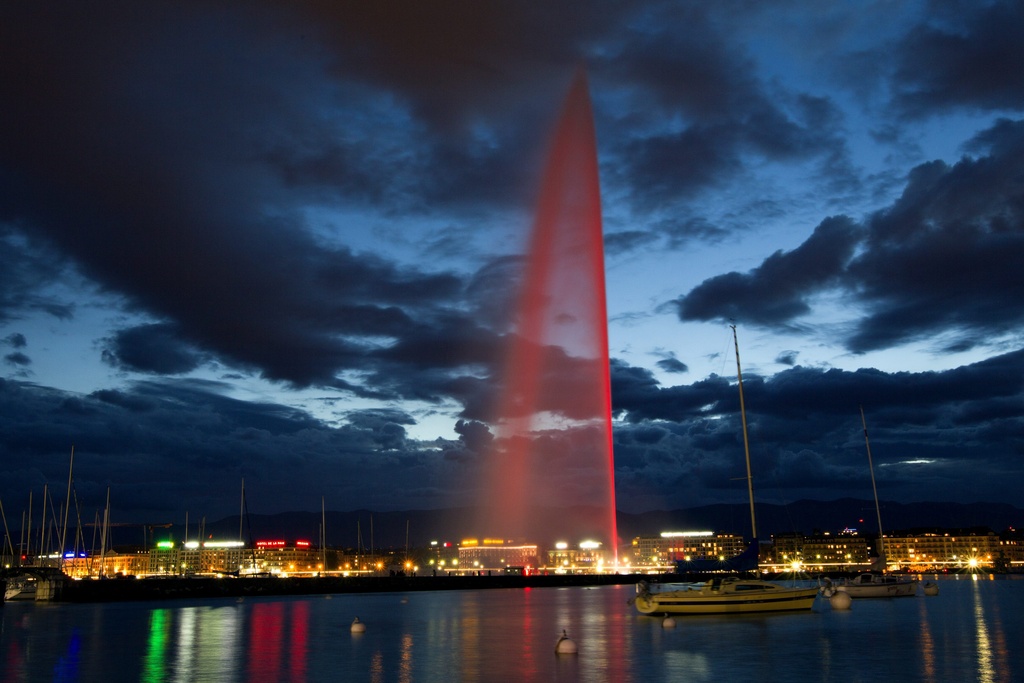Direct democracy vs. France’s street protesters
Recent protests by France’s “gilets jaunes” or yellow vests (so named after the fluorescent jackets kept in all vehicles in France) obtained changes from the government, but there are important differences with Switzerland’s system of direct democracy, writes Daniel Warner.
The recent protests by the gilets jaunes in France would seem to have all the elements of direct democracy. For several Saturdays, thousands of citizens protested in the streets throughout France against the government, initially against an increase in the tax on diesel fuel. And they were successful. French President Emmanuel Macron suspended the gas tax increase as well as acceding to several other demands of the protesters.
Switzerland prides itself on its system of direct democracy. Referendums and initiatives are fundamental parts of the Swiss political system. Citizens can annul legislation passed by their representatives in Bern. Direct democracy can overrule indirect democracy through the expressed voice of the people.

What better example of direct democracy than the people taking to the streets and having the executive branch of government agree to the citizens’ wishes? What better example of how democracy can reflect the will of the people? No need for time-consuming solicitation of signatures and verification in a referendum or initiative. The French people took to the streets; the government responded.
Short-lived
But there are important differences between the gilets jaunes in France and Switzerland’s direct democracy. While the French seem to have won on the issue of the gas tax and some increases in basic income, the gilets jaunes movement has many of the elements of the short-lived Occupy Wall Street movement and the Arab Spring. Amid the euphoria of the street protests and the blinking of the French president, there are important lessons to be learned from comparing street protests with the Swiss system.
The street protests in France were an emotional outpouring against a societal cleavage. The gas tax symbolized the dire economic situation of a good part of the population and the perception that President Macron was “the president of the rich”. Media interviews with many of the protesters confirmed that they had more than one objective, that there was a general discontent among a large segment of the population. Macron’s response was judged insufficient because the nature of the demands was not specific. While the protests wound down over the weeks (cold and rain? Christmas shopping?), it was not at all obvious how the protesters would continue after the new year.
And that’s the point. The protests were an emotional outpouring. They were not an organized political movement. There was no leadership or clear organization. Apparently, this was purposefully done to make sure that the movement was as close to the people as possible. That was part of the movement’s strength. But it was also its greatest weakness. Without an organization, without some form of political legitimization, the gilets jaunes movement has little possibility to succeed in the future.
Democracy is a system, not a state of mind
That’s what makes the Swiss system so powerful. Although individuals can start a referendum or initiative (witness the extraordinary success of the farmer Armin Capaul and the nationwide vote to change the constitution on cow horns), the system is based on political parties. Without political parties, the idea of direct democracy would not work. The Swiss system of direct democracy allows the people to overrule a decision by the legislature, but it is firmly grounded within a traditional party system. The political parties take positions on a referendum or initiative. The established parties rally their supporters to vote one way or another.
The irony of the French position is that Emmanuel Macron destabilized French politics by creating a new party, La République en Marche! That party delegitimized the traditional parties by opening new possibilities for political expression. That new expression has now moved to the streets. No need for party meetings or bureaucracy; the gilets jaunes go directly from social media to the Champs-Elysées.
The immediacy of this movement, or movements such as Occupy Wall Street or the Arab Spring, is not necessarily democratic. While democracy can easily be defined as “of the people, by the people and for the people,” it requires a legitimized system to function. That system includes branches of government and political parties in order to function.
Street protests are certainly direct and maybe even democratic in how they are organized, but they are not conducive to a functioning democracy. The direct democracy of the Swiss system is inclusive within a larger democratic process. That process may be boring – many Swiss complain that they vote too often on referendums and initiatives. The protests in France, New York and throughout the Arab world certainly satisfied many frustrations with capitalism and globalization. They were not boring.
But the difference between the boring direct democracy and the emotional street protests can only be evaluated by the medium and long-term effects. Democracy is a system, not a state of mind. While many democratic countries began in revolution, their existence has depended on constitutions and political parties. While the parties may evolve and change, their legitimizing role has remained essential. Protests are protests, and they can certainly change a political process. They cannot, however, replace a functioning democratic system.

In compliance with the JTI standards
More: SWI swissinfo.ch certified by the Journalism Trust Initiative





You can find an overview of ongoing debates with our journalists here. Please join us!
If you want to start a conversation about a topic raised in this article or want to report factual errors, email us at english@swissinfo.ch.